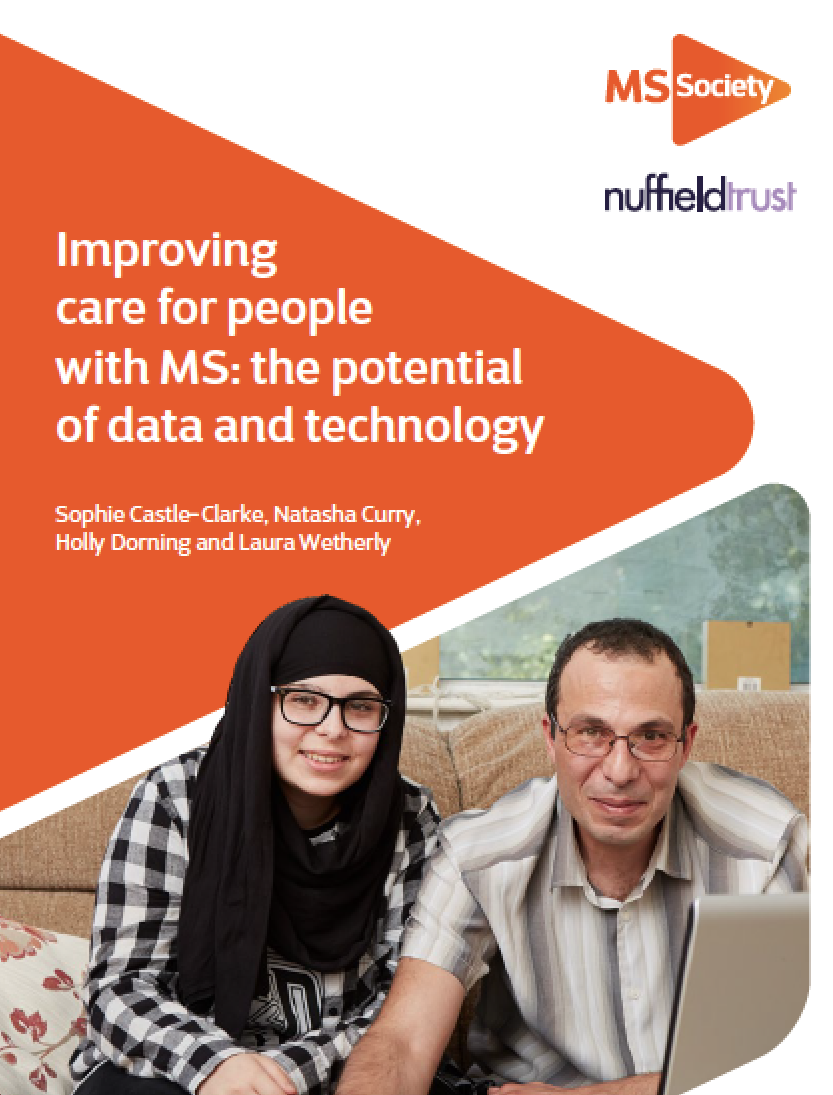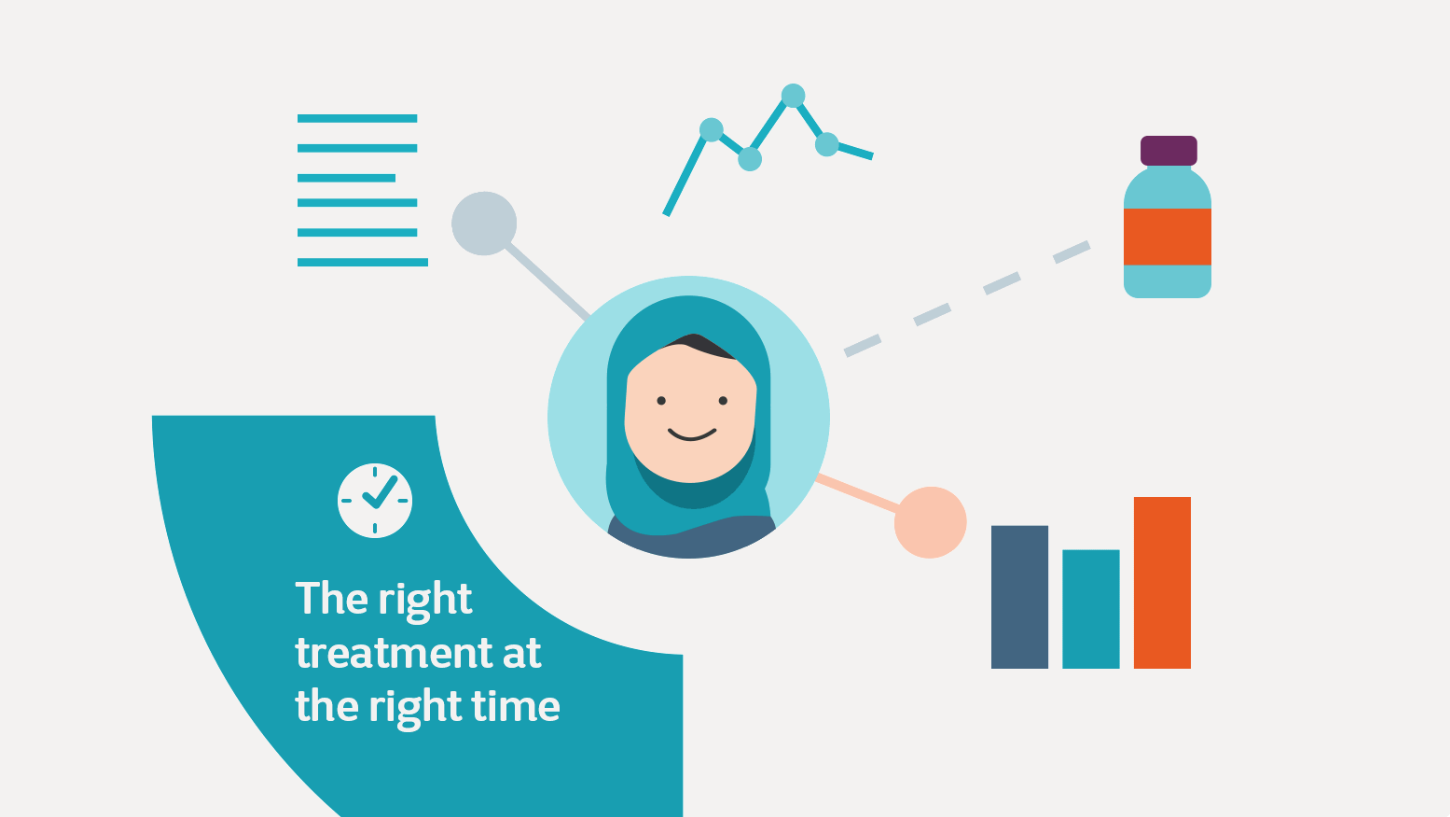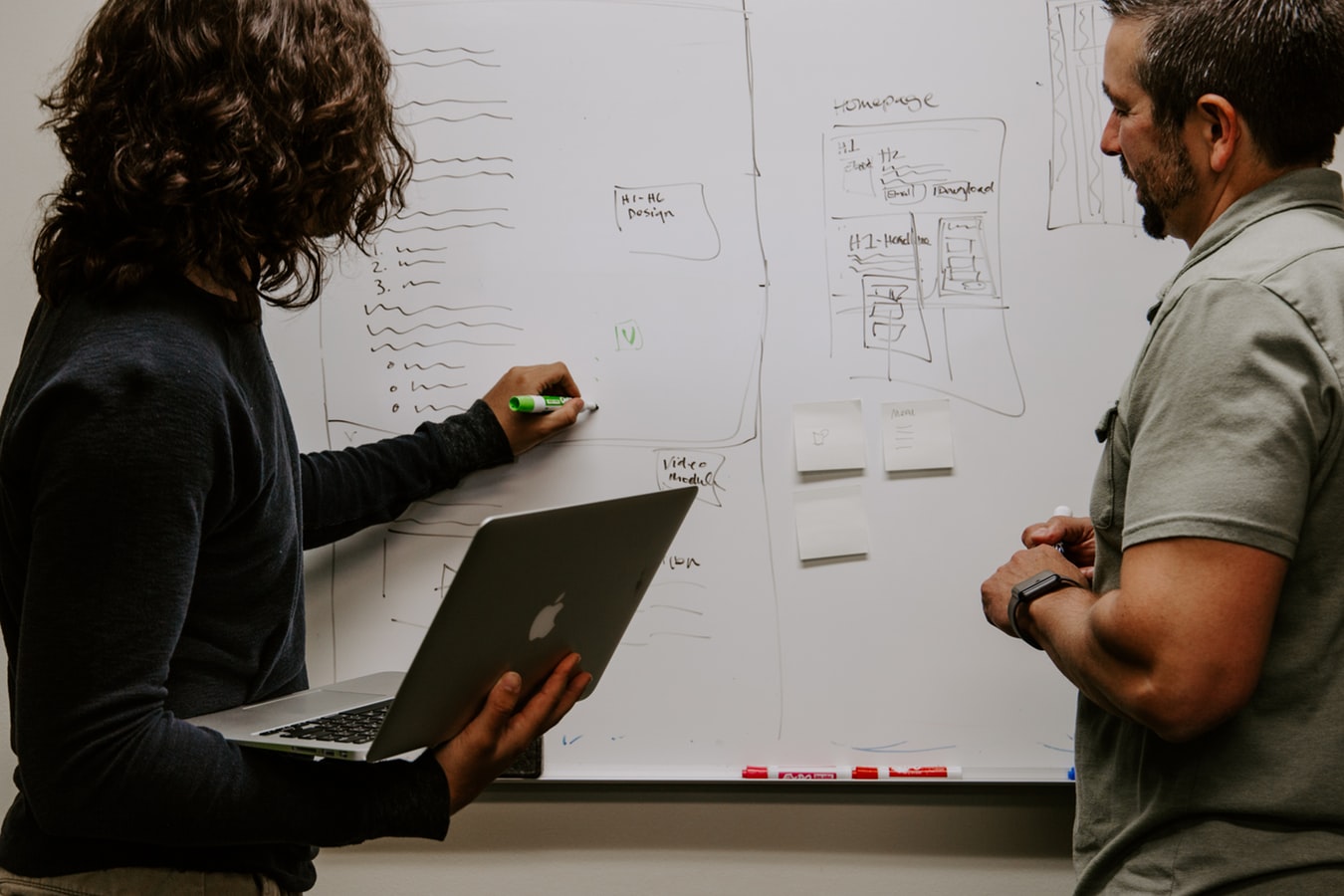How the MS Society is embracing tech to support people living with MS
Sarah Botterill | 22 Sep 2019Technology could help people living with MS to better self-manage, co-ordinate care, improve services and ensure we deliver the right treatment at the right time. Phillip Anderson, head of policy for the MS Society, explains.
 MS is a complex, long-term condition. Technology could empower people living with MS to have more control over their care. "Digital self-management puts people with MS in the driving seat over a more complex package of care, which can involve multiple healthcare professionals," Anderson told AbilityNet.
MS is a complex, long-term condition. Technology could empower people living with MS to have more control over their care. "Digital self-management puts people with MS in the driving seat over a more complex package of care, which can involve multiple healthcare professionals," Anderson told AbilityNet.
“People with MS often tell us how frustrating it is to have to repeat their story and the same information over and over. So, when one professional says I should really see a physiotherapist, but then I have to chase and chase actually to get that appointment.
“So, we think approaches like digital care planning and better data sharing between the NHS different parts of the NHS and social care could help us in that.
Using technology to better understand Multiple Sclerosis
Technology could also help improve our understanding of MS, as Anderson explains. “There’s quite a lot of evidence to share where services can really use data that exists and to plan services around what they know that local population. It can really shift the dial in terms of outcomes.
Read AbilityNet’s blog about how a computer can help you if you’re living with MS
“So, a classic example is [NHS] Trusts that can use patient data to identify people who are at risk of falling at home and to put in place a falls prevention plan. You’re preventing the problem rather than curing it, and it, therefore, we can reduce emergency admissions and long recovery times for people.
 Collecting data could also help in delivering the right solutions at the right time, says Anderson.
Collecting data could also help in delivering the right solutions at the right time, says Anderson.
“For relapsing MS, for example, there are a dozen different treatment options. But, it’s common for people with relapsing MS to try several before they find one that works for them. In the medium term, we would love to have a much richer set of data on what patients are responding to which treatments we can.”
If successful, this could lead to more personalised medicines. “We can zero in on which treatments are going to work. It means we can give people the right medication from the start," says Anderson. “It’s about linking treatment outcomes back to things like genetics and biomarkers to personalise treatment over time.
Co-creating solutions to help people living with MS
 In July 2018, the MS Society published a report on the potential of data and technology to improve the care of people living with MS.
In July 2018, the MS Society published a report on the potential of data and technology to improve the care of people living with MS.
As a direct result of its report, the MS Society is convening an MS Technology forum. “What we found is that a lot of digital tools fail because they require an unrealistic amount of time from health professionals, or they don't work for patients in that they don't fit into their lives properly. Or patients and professionals agree, but tech developers say it is unrealistic.”
The MS Technology Forum will bring together care professionals, people that have MS and tech developers to explore current innovation and identify any gaps.
“A classic example there is it's not uncommon for people with MS to have one annual appointment with the neurologist that lasts about 20 minutes,” says Anderson.
“It's a frustrating experience for the neurologist, and for the person with MS because you feel like you’re just starting the conversation, and it’s over. We’re interested in looking at how to use data technology so that neurologists have a kind of snapshot of how someone's doing in advance of the meeting."
By doing so, appointments can look forward, and explore decisions to be made.
Book a FREE visit from one of AbilityNet's disclosure-checked volunteers who'll visit you in the comfort of your own home
Also, the MS Society is looking at what digital tools the society can deliver. “We are focusing on improving a digital self-management program, which would help people. Ultimately, we'd like to build towards a full suite of tools for all symptoms and combinations MS," says Anderson.
"But for the moment, we're focusing on some of the top needs. For example, we’re developing something called Facets. It's a fatigue self-management digital program we think could be rolled out to a lot of people living with MS.
The program is currently being tested.
 Finally, the MS Society will host a neuro-tech summit in 2020, bringing together 200 health and care specialists, and relevant developers.
Finally, the MS Society will host a neuro-tech summit in 2020, bringing together 200 health and care specialists, and relevant developers.
Key topics will include, according to Anderson "How do we collectively build towards the kind of treatment data, they would really help us personalise treatments? Who can harness that data to push key interventions at people proactively, and how can everyone do that? And then everyone's favourite topic how can the Health and Care System share data better.”
“We're hoping that will be a watershed moment."
Read about AbilityNet’s Tech4Good Awards, which celebrates people innovating to help others living with disabilities and long-term conditions.



